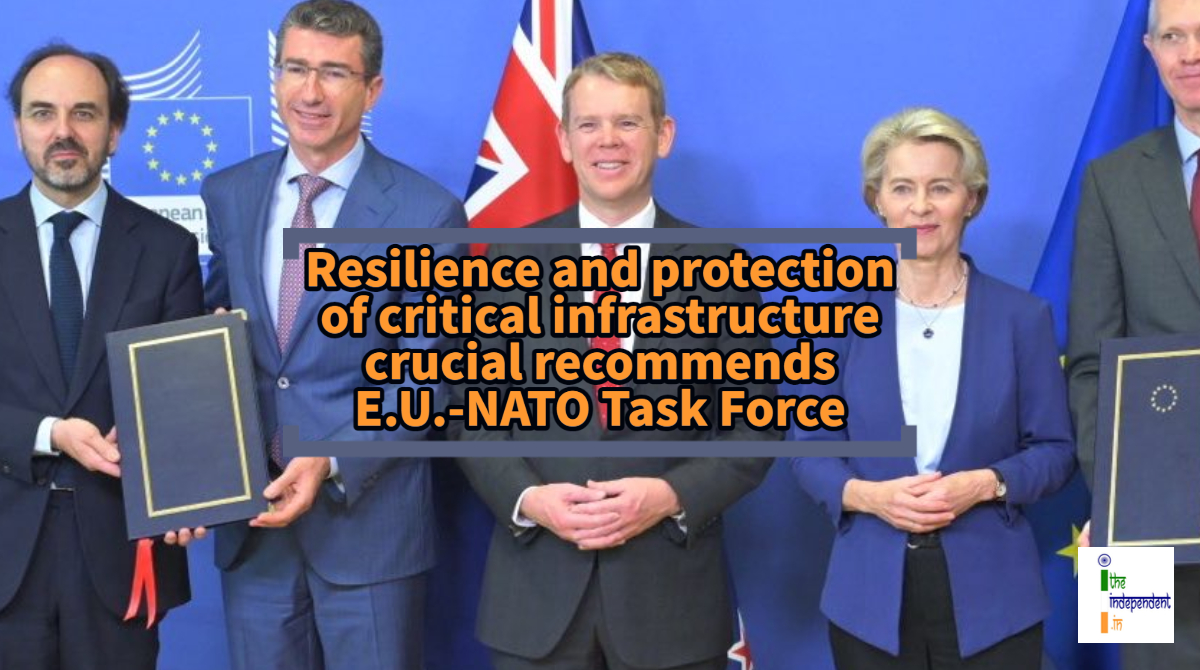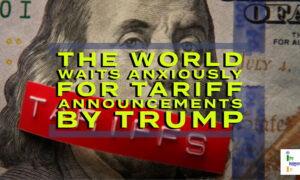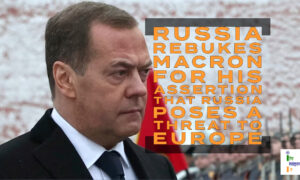
The free trade deal between EU and New Zealand is expected to enhance bilateral commerce by up to 30% within a decade
The European Union (E.U.) and New Zealand have signed a Free Trade Agreement (FTA), which will cut some € 140 million a year in duties for E.U. companies from the first year of application.
The FTA will help grow bilateral trade by up to 30% within a decade, with E.U. annual exports potentially growing by up to € 4.5 billion. The E.U.’s investment in New Zealand has the potential to grow by up to 80%.
The landmark agreement also includes unprecedented sustainability commitments, including adherence to the Paris Climate Agreement and core labour rights.
Taking it to twitter, the President of the European Commission – Ursula von der Leyen, tweeted,
Today we are signing the
— Ursula von der Leyen (@vonderleyen) July 9, 2023free trade agreement.
An ambitious, balanced agreement that reflects our shared net-zero goals.
We are already New Zealand's 3rd biggest trade partner.
Now we could increase trade between us by 30%@chrishipkins
https://t.co/W3K3zNSdle
Trade agreements are part of the E.U.’s open trade or ‘partnering’ approach, which is one of the 3 goals of the European Economic Security Strategy presented in June 2023. This agreement with New Zealand also demonstrates how the E.U. is stepping up engagement with this burgeoning region, delivering on its Indo-Pacific Strategy.
The E.U.-New Zealand FTA will provide new business opportunities by eliminating all tariffs on E.U. exports to New Zealand, opening the New Zealand services market in key sectors such as financial services, telecommunications, maritime transport and delivery services. It will also ensure non-discriminatory treatment to E.U. investors in New Zealand and vice versa, improve access for E.U. companies to New Zealand Government procurement contracts for goods, services, works and works concessions. It will also help by facilitating data flows, predictable and transparent rules for digital trade and a secure online environment for consumers.
It will prevent unjustified data localisation requirements and maintain high personal data protection standards, helping small businesses export more through a dedicated chapter on small and medium enterprises. It will also help reduce compliance requirements and procedures, allowing for a quicker flow of goods. New Zealand has also committed itself to protecting and enforcing Intellectual Property (IP) rights aligned with the E.U. standards.
In addition, the E.U. farmers will have much better opportunities to sell their produce in New Zealand immediately upon application of the agreement. The E.U. farmers will see benefits beyond the tariff cuts. In addition, 163 of the most renowned traditional E.U. products (Geographical Indications), such as Asiago, Feta, Comté or Queso Manchego cheeses, Istarski pršut ham, Lübecker Marzipan, Elia Kalamatas olives will be protected in New Zealand.
The agreement considers the interests of E.U. producers of sensitive agricultural products such as dairy products, beef and sheep meat, ethanol and sweetcorn. For these sectors, there will be no liberalisation of trade. Instead, the agreement will only allow zero or lower tariff imports from New Zealand in limited amounts (through so-called Tariff Rate Quotas).
The E.U.-New Zealand FTA is the first one to integrate the E.U.’s new approach to trade and sustainable development announced in the Communication “The power of trade partnerships: together for green and just economic growth”, adopted just a week before the negotiations of the free trade agreement were concluded in June 2022.
Going ahead, the agreement will now be sent to European Parliament for consent. After the consent, the European Council will adopt the decision on the conclusion. Once New Zealand notifies that it has also completed its ratification procedure, the agreement can enter into force.








